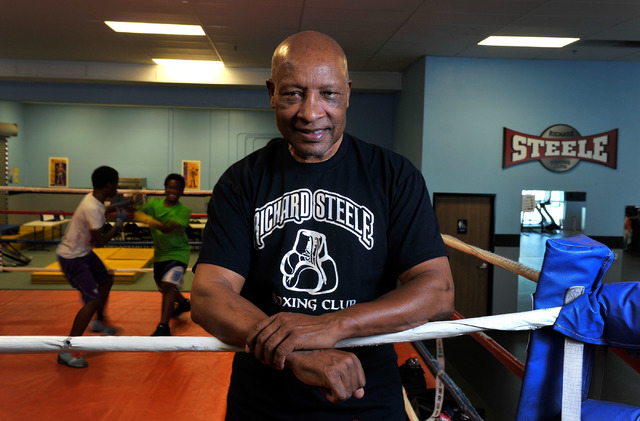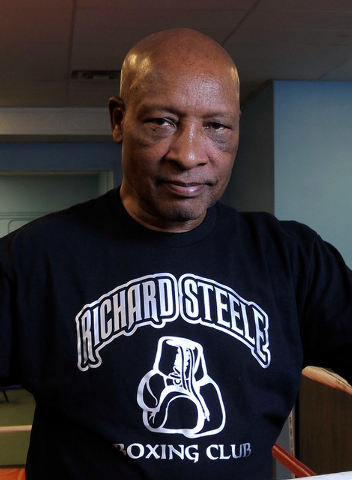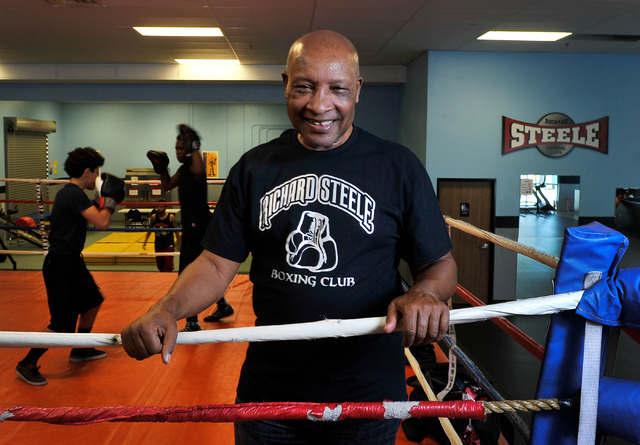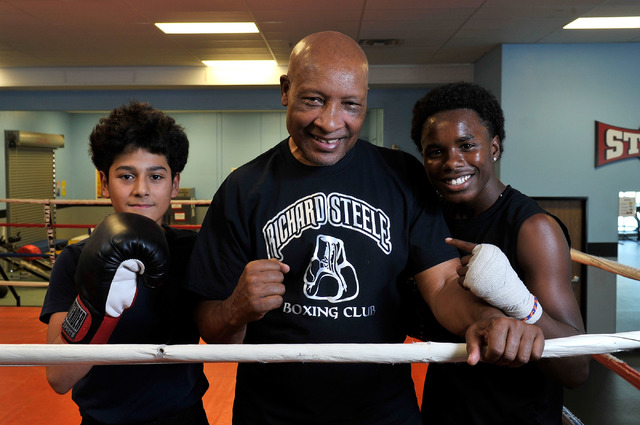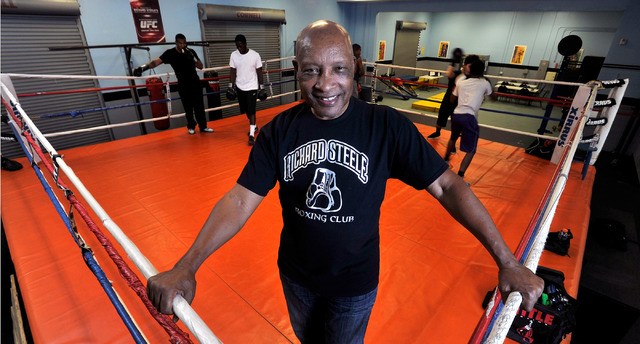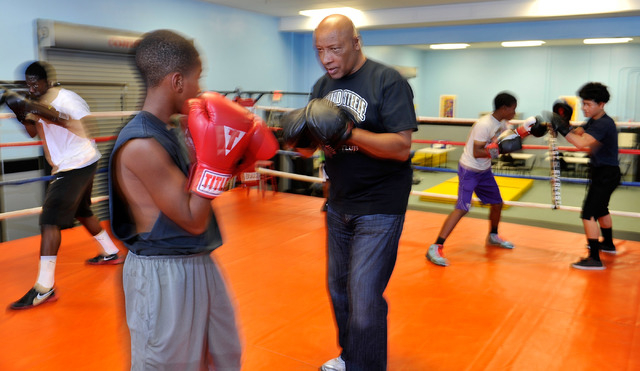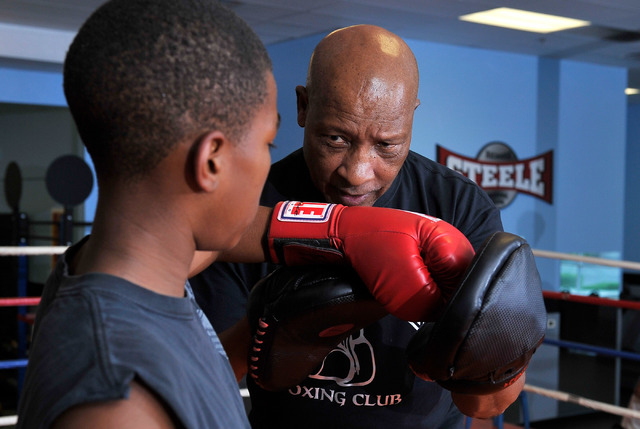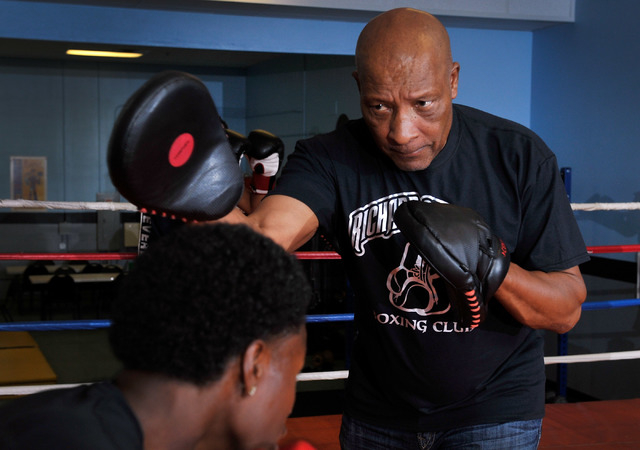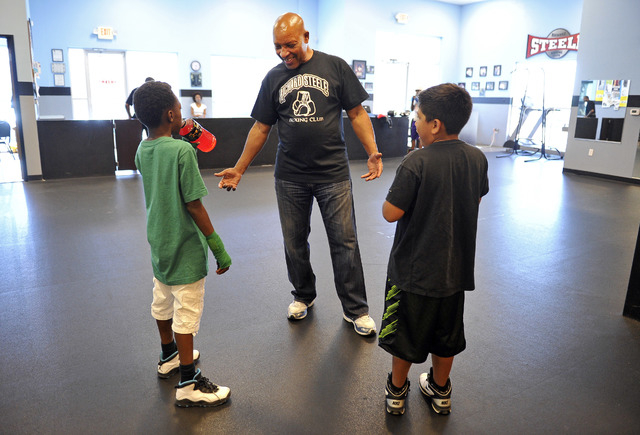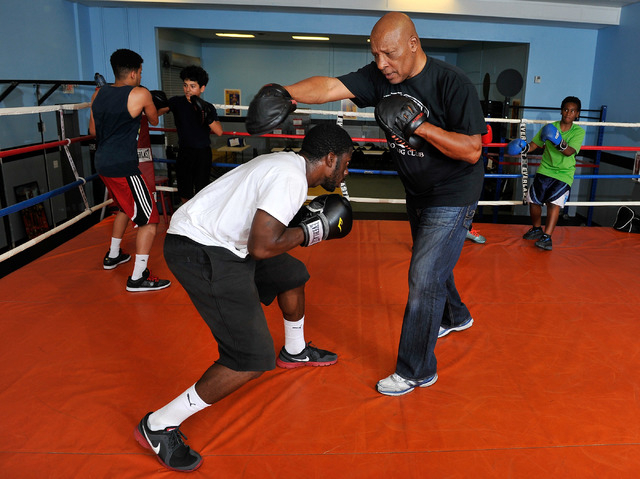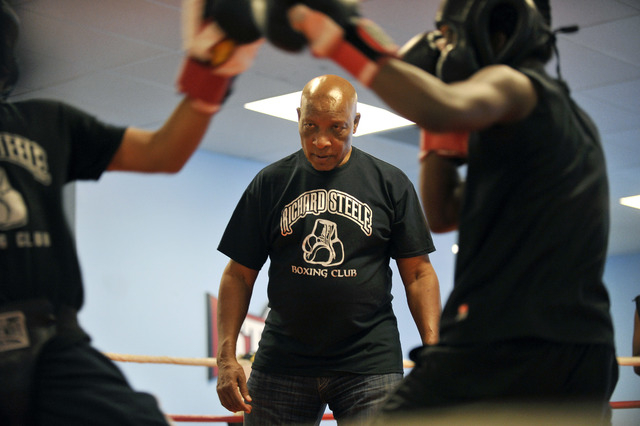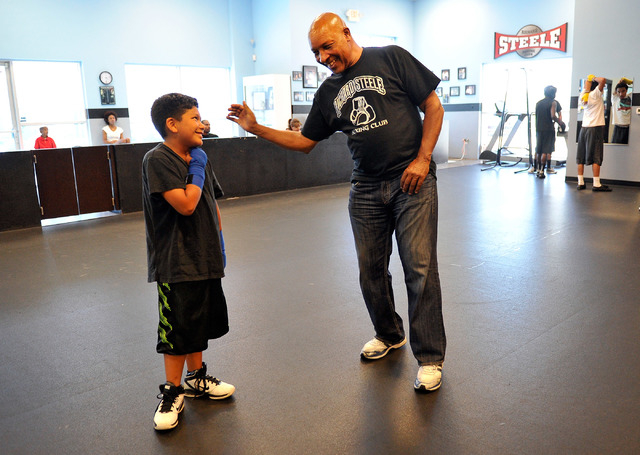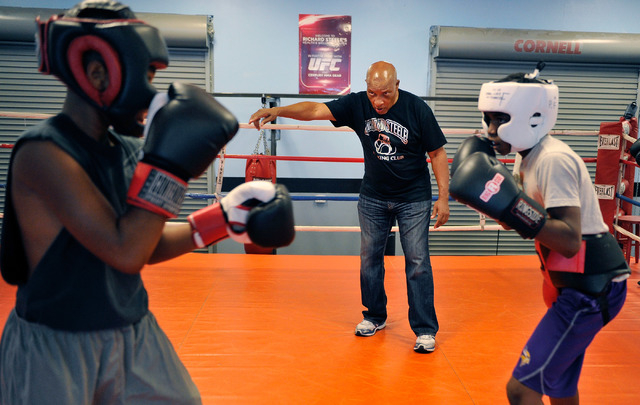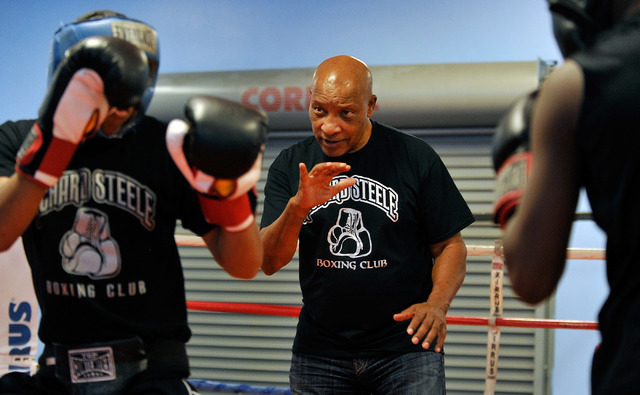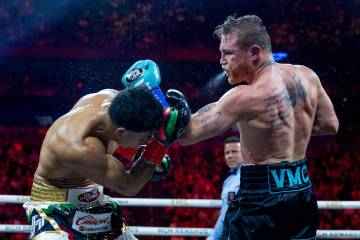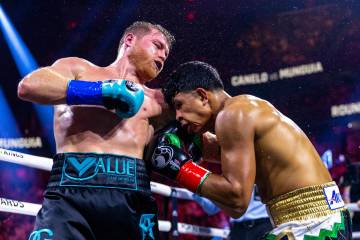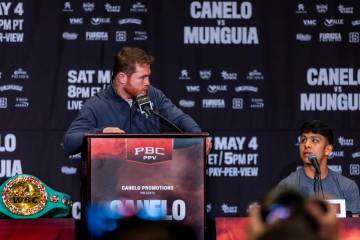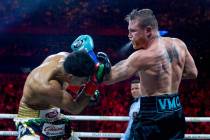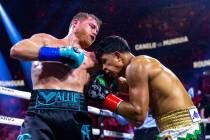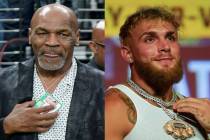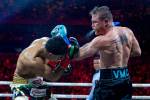Hall inductee Steele: ‘I owe my life to boxing’
Had he not lied to the great Joe Louis and subsequently went to a friend’s house, it’s likely Richard Steele wouldn’t be who — or where — he is today.
He became one of the world’s best boxing referees and worked some of the biggest fights of the 1980s and 1990s. And today he’s in Canastota, N.Y., where he will be inducted into the International Boxing Hall of Fame.
But Steele probably never would have seen the inside of a ring had he not ran into Louis in Los Angeles as a 12-year-old.
“I was at a youth center, and Joe Louis asked me if I was training, and I said ‘Yes, sir!’ but the reality is I wasn’t into boxing, I was running around with a bad crowd getting into trouble,” Steele said. “But right after that, I went over to Albert Wright’s house, and his father had been the middleweight champion, and he wanted to show me his (championship) belt.
“We became friends, and I started going to the gym to learn how to box. If I didn’t go over there that day, I’m guessing I would have wound up in prison or dead.”
Instead, he embraced the sport. He boxed in the Marines, then turned pro and was initially trained by Hall of Famer Eddie Futch.
“It made a man out of me. I owe my life to boxing,” Steele said.
Steele, 70, is part of the Class of 2014 that includes boxers Oscar De La Hoya, Felix Trinidad and Joe Calzaghe. He is the third Nevada-based referee to be inducted, joining Mills Lane and Joe Cortez.
“That’s one of the things I’m proudest of about this honor, that I’m going in and joining Mills and Joe,” Steele said.
Steele became a referee after a pro career that at best was modest. He was a light heavyweight with a 12-4 record with 10 knockouts in 1970 when he was asked by the California State Athletic Commission to hang up his gloves and work as a third man.
He was reluctant at first, but Futch told him it was important that, as an African-American, he accept the offer.
“Eddie said it was an honor to be chosen, and he was right,” Steele said. “He was right about a lot of things. He was a very wise man. Looking back, I’m glad I listened to him.”
Steele quickly become a reliable referee, and in 1981, he moved to Las Vegas so he could work fights in Nevada.
“The Nevada Commission had a rule that said to referee in Nevada you had to live in Nevada,” he said.
He never left, working almost 200 world title fights, including arguably the most exciting one in the sport’s history.
In April 1985, Marvin Hagler and Thomas Hearns fought at Caesars Palace for Hagler’s undisputed middleweight crown. Steele, who trained like a fighter for his assignments, was huffing and puffing after the first round, an electrifying three minutes that saw both fighters land huge shots.
“After that first round, I said, ‘Damn, these guys can’t keep this pace up,’ ” Steele said. “The next thing I knew, Tommy was in my arms and it was over.”
That was in the third round. Hagler had suffered a nasty cut on his forehead, and with blood pouring out, he knew he had to try to end the fight as quickly as possible. A barrage of shots floored Hearns, who got up but was in no condition to continue. The fight was over after 8 minutes, 1 second.
“That was my favorite fight,” Steele said. “I worked the (Sugar Ray) Leonard-Hagler fight a couple of years later, and that was a great fight, too. But Hagler-Hearns was my favorite.”
Like any referee, Steele had controversial moments. Perhaps the biggest was in a fight between unbeatens Julio Cesar Chavez and Meldrick Taylor in March 1990 at the Las Vegas Hilton.
Taylor, an underdog, was comfortably ahead on two of three scorecards with one round left. But after Chavez landed a powerful combination of punches in the final 25 seconds of the 12th round, Steele stopped the fight with two seconds remaining, giving Chavez a technical knockout.
In the aftermath, Steele was the object of tremendous public and media criticism, and booed during ring introductions for years afterward.
But he never wavered on his decision to stop the fight.
“I thought I did the right thing then, and I think I did the right thing now,” Steele said. “It’s not my job to make a guy win. My job is to protect the fighter. Fortunately, the commission had my back.”
He retired in 2001 after officiating Floyd Mayweather Jr.’s victory over Diego Corrales, but came back in 2004 and worked until 2006 before retiring for good. He has remained involved in the sport through his North Las Vegas boxing gym and nonprofit group that helps disadvantaged kids.
For Steele, who also will be inducted into the Nevada Boxing Hall of Fame in August, today’s ceremony in upstate New York is a validation of his hard work and dedication to boxing.
“I’m really looking forward to getting that (Hall of Fame) ring put on my finger,” he said. “I don’t wear a lot of jewelry, but I can tell you this — I’m not taking that ring off.”
Contact reporter Steve Carp at scarp@reviewjournal.com or 702-387-2913. Follow him on Twitter: @stevecarprj.



